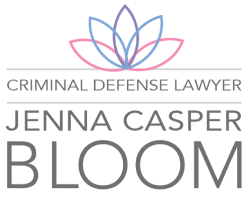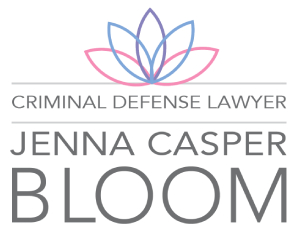Drug crimes are prosecuted aggressively in New Jersey, particularly in Somerset, Warren, and Hunterdon Counties. Even a small quantity of an illegal drug in your possession can lead to severe consequences in the criminal court system. It is imperative to hire a skilled drug offense trial attorney like Jenna Casper Bloom to represent you on drug charges.
What Drugs Are Illegal in Flemington, New Jersey?
- Cocaine
- Crack
- Heroin
- Opiates
- PCP
- MDMA (Ecstasy or Molly)
- Methamphetamine
- Prescription drugs without a valid prescription
- Marijuana in certain circumstances (see below)
- OxyContin
- Synthetic Marijuana
- LSD
- Any other controlled dangerous substance
The amount and type of drugs you have in your possession will determine what type of criminal charges apply. For example, possession of a small amount of crack cocaine carries more significant consequences than possession of a large amount of marijuana.
Cannabis Use and Possession in New Jersey
On February 22, 2021, the governor signed the New Jersey Cannabis Regulatory, Enforcement Assistance, and Marketplace Modernization Act (CREAMMA), allowing individuals ages 21 and older to purchase and use cannabis products without a medical use card. This law legalizes the recreational use of cannabis products and decriminalizes possession for personal use. According to the text of the Act, it will “eliminate the problems caused by the unregulated manufacture, distribution, and use of illegal marijuana within New Jersey,” including crime, discriminatory incarceration, and wasteful spending on prohibition enforcement. The Act also created the Cannabis Regulatory Commission. This new government department issued rules and regulations for selling and possessing cannabis products in August 2021.
It remains illegal for individuals under age 21 to purchase or use cannabis products. Municipalities may issue their own revised prohibitions against the sale or use of cannabis, provided those restrictions comply with the new state laws’ various provisions. Because the changes in the law are so recent and the enforcement rules and regulations are not yet comprehensive, it can be difficult for individuals charged with cannabis violations to determine whether they have a valid legal defense. If you face charges for possession of a cannabis product, consult an attorney immediately.
What Are the Penalties for Various Drug Possessions in Flemington, New Jersey?
According to information published by the New Jersey State Attorney General regarding marijuana decriminalization and cannabis regulation, the following rules apply:
- Regulated cannabis. When cannabis or hashish is bought, sold, and used under the conditions allowed by CREAMMA and the Cannabis Regulatory Commission or the Compassionate Use Medical Marijuana Act (CUMMA), it is “regulated cannabis” and fully legal in New Jersey.
- Marijuana and hashish. All forms of the substance that are not regulated cannabis or medical cannabis are still defined as “controlled dangerous substances” under NJSA 2C:35-2 but are largely decriminalized for non-distribution offenses. The new laws eliminate existing prohibitions and create more lenient penalties for possession and distribution that remain tiered based on weight.
- Cocaine possession. Possession of up to half an ounce of cocaine is a third-degree felony, punishable by a penalty of up to five years in state prison as well as a $75,000 fine. Having more than that amount (but less than 5 ounces) increases the charges to a second-degree offense, with a penalty of up to 10 years in state prison and up to $150,000 in fines. More than 5 oz. will result in first-degree felony charges, with up to a 20-year prison sentence and $500,000 in fines.
Generally, first offense violations for other controlled substances or illegal drugs carry penalties of up to five years’ imprisonment, a fine of up to $25,000, loss of a driver’s license, and drug rehabilitation.
What Are the Penalties for Drug Distribution Charges in Flemington, New Jersey?
The State prosecutor will almost always try to charge you with intent to distribute, even if you only had the drugs for personal use. While most individuals believe these charges only apply if you were selling drugs, you could also be charged with intent to distribute if you intended to share them with anyone else (even without compensation). The State will consider the amount of drugs in your possession, how they were packaged, if any money was found, if an alleged buyer was also arrested, the location of your arrest, and a lack of use paraphernalia to charge you with a distribution offense rather than a simple possession offense. Distribution offenses often have more significant consequences than straight possession charges.
Drug distribution offenses are categorized from first-degree offenses (most severe) to fourth-degree offenses (least severe). Distribution cases are some of the most serious charges because of the penalties involved.
Like straight possession cases, the seriousness of drug distribution charges depends on the amount and type of the drug in question. Possession with intent to distribute more than 5 oz. of heroin, cocaine, or methamphetamines will be charged as a first-degree offense (with ½ oz. – 5 oz. qualifying for second-degree charges and less than ½ oz. charged as a third-degree offense). Possession of other regulated narcotics generally results in lesser charges. As of 2021, individuals charged with criminal drug distribution offenses face the following penalties and fines, in addition to court costs and other potential collateral consequences:
First Degree Offenses
- 10-20 years in state prison – potentially more, depending on prior convictions
- Fine up to $500,000
- Loss of license
- Mandatory drug penalty fines
Second Degree Offenses
- 5-10 years in state prison
- Fine up to $175,000
- Loss of license
- Mandatory drug penalty fines
Third Degree Offenses
- 3-5 years in state prison
- Fine up to $35,000
- Loss of license
- Mandatory drug penalty fines
Fourth Degree Offenses
- Up to 18 months in state prison
- Fine of $15,0000
- Loss of license
- Mandatory drug penalty fines
Jenna Casper Bloom has tried numerous drug distribution cases and has handled thousands of drug distribution cases that were resolved through plea agreements or dismissed entirely. She knows how to read lab reports, examine the chain of custody, and aggressively attack the State’s “experts,” who are usually just police officers who have attended various training classes offered by their departments. Additionally, she can argue for reducing distribution charges to a straight possession case, even if the State attempts to prove otherwise.
Drug Charges On or Near School Property or Public Property in Flemington, New Jersey
Another component of many drug distribution cases is being charged with distribution within 1000 feet of a school or 500 feet of a public facility like a park or housing. In Trenton, for example, you are guaranteed to be in one of these zones no matter where you are arrested because of the number of schools and public housing areas in the town. These charges carry additional penalties, including significant added fines as well as a required period of ineligibility for parole. This “fixed-term” requirement means you must serve more of your sentence than ordinarily required under law before being eligible for parole. If you are charged with a third-degree offense and face five years in state prison, for example, you would have to serve 2.5 years of state prison time before you become eligible for parole. Typically, you would be eligible for parole after only serving one year in state prison.
Drug Court in Flemington, New Jersey
One of the best options available besides a straight dismissal to resolve your drug offense case is by way of Drug Court. Drug Court is a unique experience in New Jersey. Specialized Drug Court judges work with attorneys, probation officers, treatment professionals, and substance abuse evaluators. They encourage recovery to reduce recidivism (future additional drug offenses). The program is only available for individuals with no criminal history who have been charged with a drug offense.
Those enrolled in the program undergo five years of intense probation instead of prison, including regular drug testing and court appearances. After the five years are completed, an individual is eligible to have all criminal charges expunged from their record. No other program in New Jersey offers this “clean slate” option.
An individual can enter Drug Court in two ways. One is voluntary; an individual applies to drug court, the prosecutor agrees to let them in, and then the individual has a drug and alcohol evaluation to determine if they need treatment. If it is determined they don’t need treatment, they will not be allowed to choose this option. The second way is mandatory; a judge sentences an individual to Drug Court whether they have applied or not. This situation still requires a drug and alcohol evaluation reflecting the individual’s need for drug rehabilitation.
Schedule a Consultation with Flemington Attorney Jenna Casper Bloom
Jenna Casper Bloom has over fourteen years of experience handling all criminal matters, including thefts, drug offenses, weapons offenses, sexual assault, aggravated assault, domestic violence, Megan’s Law offenses, Graves Act, DWI/DUI, traffic tickets, pre-trial intervention, gun offenses, marijuana charges, and expungements. She has extensive trial experience and handles cases in all stages as well as pre-trial hearings like motions to suppress and Miranda hearings. She provides an aggressive defense to criminal charges, a strategy that often results in her clients receiving favorable outcomes. Additionally, Jenna Casper Bloom often gets cases dismissed entirely or negotiates for her clients to plead guilty to a lesser offense. She has argued many probation and parole violation hearings that resulted in her clients staying on probation or parole rather than returning to prison. She also has experience with detention hearings, allowing her clients to go home pending their trials instead of languishing in jail.
If you can be charged with the crime, Jenna Casper Bloom has experience defending it. She practices in Mercer County, Hunterdon County, Warren County, Somerset County, and the towns of Trenton, Flemington, Clinton, Raritan, Annandale, Union, Pennington, East Amwell, West Amwell, Lawrenceville, Ewing, and Princeton.
Jenna Casper Bloom will treat you as the person you are, not the crime for which you have been charged. Contact her today for a free consultation.


